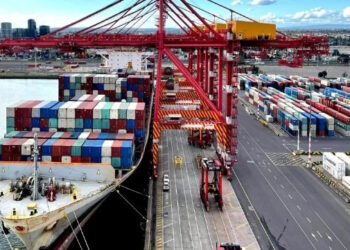
Nigerian shippers have called on the Federal Government to review its implementation of the expired 180-day duty-free food importation waiver, claiming that rigid guidelines and bureaucratic delays have rendered the policy ineffective in achieving its goal of reducing food prices.
The Federal Government’s food import waiver policy, launched in July 2024 to combat Nigeria’s escalating food crisis, was intended to waive import duties on essential staples like maize, rice, wheat, and cowpeas.
However, the policy was hampered by poor implementation and bureaucratic hurdles, rendering it ineffective.
The Nigeria Customs Service (NCS) which was responsible for enforcing the waiver, revealed in August 2024 that it could not act because the Federal Ministry of Finance failed to provide a list of eligible importers. As a result, the policy never fully-materialized and by the time the waiver window closed in December 2024, no importer could claim to have benefited.
Shipping Position Daily recalls last week that the Director-General of Lagos Chamber of Commerce and Industry (LCCI), Chinyere Almona criticized the Federal Government’s delayed execution of its duty-free food importation policy, citing its ineffectiveness in addressing Nigeria’s food crisis.
The LCCI’s concerns were heightened by the arrival of a 32,000-tonne shipment of brown rice from Thailand, imported by a logistics firm DUCAT, after the policy’s 180-day duty-free window had expired.
Although the rice import was intended to combat Nigeria’s persistent food inflation, which slightly reducing from 39.93% in November 2024 to 39.84% in December 2024, the LCCI argued that the government’s sluggish implementation undermined the initiative’s purpose. The delayed policy execution, she said, failed to provide the intended relief to consumers and businesses grappling with soaring food prices.
Speaking with Shipping Position Daily last week, a shipper and Board of Trustees member of the Shippers’ Association Lagos State (SALS), Nicodemus Odolo, criticized the policy’s rigidity, particularly its reliance on the date of arrival to determine waiver eligibility. He argued that decisions should instead be based on the date of shipment, as importers often have no control over shipping delays.
Odolo also pointed at the challenges with foreign exchange volatility and scarcity as a key obstacle. He stressed that while the waiver exempts importers from duties, it does not address the difficulty of sourcing forex for payments. According to him, exporters increasingly require payment upfront, treating Nigeria as a high-risk market.
He further called on the government to streamline its processes by issuing clear circulars on waiver implementation, including start and end dates, while also addressing bureaucratic bottlenecks.
“Under normal circumstances, decisions on waivers should be based on the shipment date. If goods were shipped before the waiver’s expiration, they should qualify, regardless of when they arrive. Importers have no control over shipping timelines or delays. The government must ensure that policies are implemented with flexibility and efficiency to achieve their intended goals,” Odolo concluded.
Also speaking, a chieftain of the Importers Association of Nigeria (IMAN), Ayopade Omolale criticized the policy for its lack of clear communication and planning. He noted that while the initiative was commendable, government failed to provide specific timelines or a circular to guide importers.
The importer cited instances where importers were unexpectedly hit with full duties due to the expiration of the waiver without adequate notice or circulars from relevant authorities. This oversight, he argued, not only created a hike in food prices, but also imposed additional hardships on importers.
Omolale urged government to ensure proper planning and communication, including specifying start and end dates, issuing circulars, and providing grace periods for implementation. He also referenced discussions from a recent Presidential Tax Reform Committee meeting, which advocated for continuity in tax exemptions on essential goods and agricultural produce to safeguard citizens’ welfare. “The committee advocated for the exemption of essential goods from VAT to ensure the safety and welfare of citizens. We hope they reactivate this initiative properly,” he stated.
On his part, the Chief Executive Officer for Centre for the Promotion of Private Enterprise (CPPE), Dr Muda Yusuf called for an urgent overhaul of the country’s policy implementation framework, warning that persistent bureaucratic delays are undermining the effectiveness of government initiatives.
Speaking on the importance of seamless execution, Yusuf emphasized that a policy’s success depends largely on how well it is implemented. He noted that the delays and bottlenecks that typically accompany policy execution in Nigeria often hinder the achievement of desired outcomes.
“We need to improve our policy implementation apparatus. These significant implementation lags should not be repeated with other policy measures. A policy is only as good as its implementation, and the bureaucratic delays that normally affect this process need to be addressed to ensure that policy measures deliver the intended results.” Yusuf stated.















